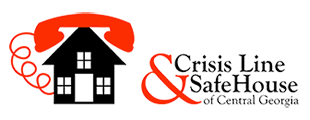Crisis Line & Safe House added the Counseling Center to its array of services in 2018. Since then, the center has provided support groups to victims of domestic violence. Due to the COVID-19 pandemic and little interest in a virtual support group, the Counseling Center had to temporarily stop support groups. As of 2022, both community and shelter support groups are returning to the Counseling Center. Director Susan Johansen has recently returned to providing support groups for the residents of the shelter, and on the evening of Tuesday, April 12th, counselor Andrea Hughes will begin facilitating a weekly support group for survivors of domestic violence. This group is a community group, so survivors from the community or former residents of the shelter can participate. It is also an open group, which allows clients to come as often or as little as they feel they need. There will be a brief intake and security will be provided at these meetings.
The Counseling Center also offers individual therapy, which generally focuses on trauma recovery and healing, skill building, growing resilience and overall improving quality of life. In a support group, the counselors serve as a facilitator; meaning, counselors serve as a host and guide for supportive conversation. Counselors also provide information and education on the dynamics of abuse, discuss safety issues and lead self-care exercises such as meditation and focused breathing. “Most of all, it is an outlet for clients to support one another and to have conversation amongst themselves,” Johansen says. There is also a focus on safety and confidentiality in these groups. At the end of the session, clients are given a short survey to complete so that the counselors can know how to better their services next time. There are also annual surveys for clients who are regular participants.
Suzanne Walker, the director of the shelter, spoke of the benefits of having a support group hosted at the shelter. She believes that more clients attend support group because it is held in the shelter, making it very accessible to clients. For the first support group after the pandemic, the shelter provided a taco bar for residents to encourage participation. The support group provides a safe space for clients to talk about traumatic experiences and the daily challenges that may result from these experiences, as well as lets them dip their toes in the water of positive, supportive, and healing socialization. Often, shelter staff can see more of a sense of community among shelter residents who participate. It also shows residents that they are not alone. Even if residents have two very different situations, it gives them an opportunity to see where their situations are similar and talk about it. Johansen sees a therapeutic opportunity for past shelter residents who want to continue with the community support group after they leave the shelter. Moving from a support group in the shelter setting to a support group in a community setting “gives them an opportunity to break out of their comfort zone and build new relationships,” she says.
This is an exciting addition to the Counseling Center. It allows Crisis Line & Safe House to provide further support for victims of domestic violence, and the Counseling Center hopes to soon add to their services a support group for victims of sexual assault. For further information about the community support group for victims of domestic violence, call the 24/7 hotline at 478-745-9292.
